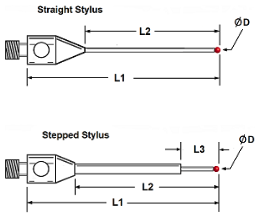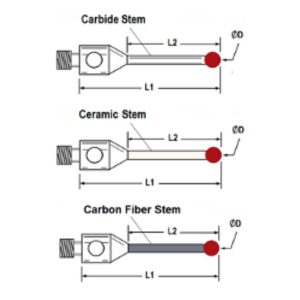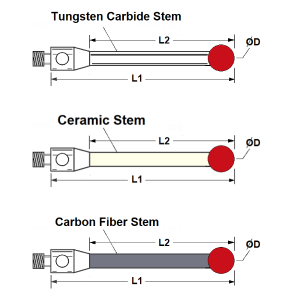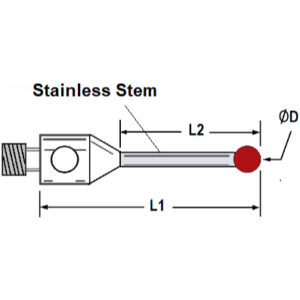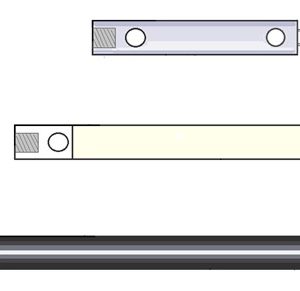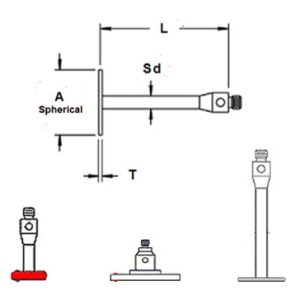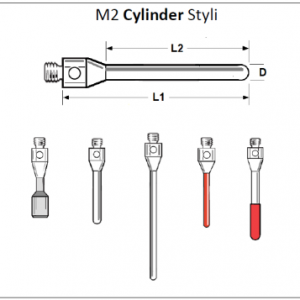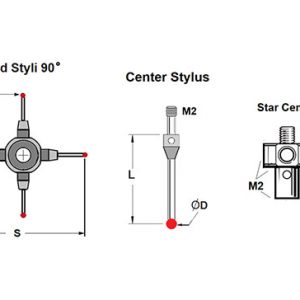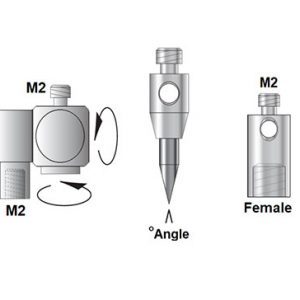M2 Styli 0.2mm to 0.8mm Ball
Highly Spherical Ball Styli are the most common tips for use on CMMs with touch trigger probe systems. The sphericity of the ball and stiffness of the stem are critical for getting the most accurate measurements. The stylus is calibrated for exact diameter and then software compensation creates the measured point at the ball center instead of the surface in contact with the part.
The Styli on this page have 1mm, 1.5mm, 2mm and 2.5mm ball diameters. All of these have a Tungsten Carbide stem that have the best stiffness to weight ratio except longer 2mm and 2,5 mm may be available in Carbon Fiber stem. Ruby is the most common, very spherical, physically hard and durable ball material. Ruby has exceptional hardness and wear resistance and is the most cost effective. Silicon Nitride is very smooth surface that offers lower friction when scanning and does not accumulate material as ruby would especially when scanning aluminum Zirconia is an extremely hard ceramic and has excellent wear resistance. This ball is ideal for scanning steel and cast materials Diamond is the hardest material and due to the high cost is only for the most demanding scanning applications. Solid diamond is ground to grade 10 and is only available in a few sizes, Diamond coated are more cost effective and ground to Grade 5 – call for options and pricing

